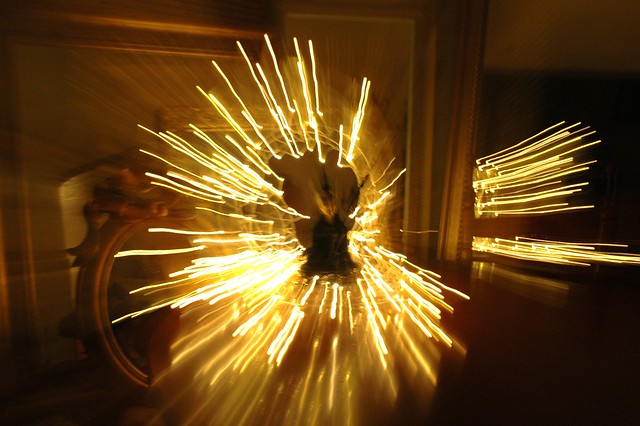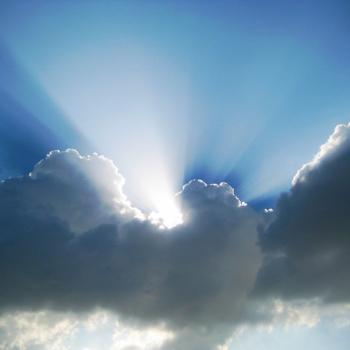
How Are We Called to Live?
Many of us struggle with discerning how we are called to live.
We live in a world where it is challenging to grasp what being called even means. Some of us grew up choosing between vocational classes and academic classes in school. We may have needed to decide whether to attend a vocational school or a professional school.
Most of us have a vague sense of our calling. In everyday life our vocation is synonymous with our profession, our career, our work, our job.
While I have my own vocational challenges, my understanding of calling is different.
Our vocation is not the career we fell into after school or inherited from our family. Vocation is not limited to what we do for a living or the jobs we hold. It is not necessarily what we are most excited about or what makes us the happiest.
A vocation is more than how we earn money. Many of us need to find a job we can tolerate so we can pay our bills. Our vocation is more of a calling. Vocation is more in line with a purpose or a mission, what some people call their life’s work.
We may have vocational challenges because we are reluctant to spend so much of our time doing what we are not drawn to do. There may be expectations we struggle to meet, our own as well as other people’s. We may pressure ourselves to be practical or to conform.
Some of us might be afraid of spending too much time and effort discerning how we are called to live.
Many of us work hard to keep our own vocations hidden, even from ourselves.
What is our vocation? How do we face the vocational challenges which get in our way?
My Own Vocational Challenges
For me, facing vocational challenges is not something I was able to do once and for all.
I decided when I was in third grade I was going to become a lawyer. It was not work with which I had any personal experience. There were lawyers I had seen on television and in movies. I was an avid reader of biographies and noticed many of the people I read about had been lawyers.
While it took hard work and perseverance through some challenges, I stayed in school to complete law school. I had learned a lot about the law and arguing, but did not really know much more than I had in third grade.
It was the experiences of practicing law which showed me it might not be my vocation.
I enjoyed reading and analytical thinking as well as arguing. My experience with the legal system started me thinking there must be healthier, more productive ways to resolve conflicts.
My own discerning of vocational challenges took me through several twists and turns. I started to realize my tendency toward perfectionism might not be particularly helpful. My own personal spirituality began to develop in a more contemplative direction.
I tried and gained insights from my experiences in various kinds of organizations. Each situation and group of people in which I worked helped me understand my vocation in new ways.
Several years ago I had an opportunity to take some time and discern how I was called to live. It was helpful to examine many of the pieces and see how they could fit together. I followed contemplative practices and took long, thoughtful walks.
It felt like I had a much clearer understanding of vocation than I had before.
Now I regularly take time to discern and clear away the debris.
Facing Our Vocational Challenges
Many of us seem to believe finding our vocation is like building a house. We want a strong foundation and a comfortable structure. Our assumption is our vocation grows larger and more ornate over time, adding layers and new features.
Part of our vocational challenges is the myriad of options and choices we face. We do not have comprehensive information or experience and we tend to jump to conclusions.
Our vocation is not something anyone else can fit us into. It is not a box or a plan or a set of easily understood goals. We cannot fill out a form or answer a few questions to receive a quick response.
It is also one of our vocational challenges we do not necessarily know our own true selves. Some of us want a simple, organized approach which will not require us to spend much time reflecting. It would be helpful if we could attend a seminar on a Saturday morning which would resolve our vocational challenges.
We find our vocation only when we know who we truly are, which can take many of us hard work over a long time.
The ways we face our vocational challenges shape our understanding.
Insights and Questions of Vocational Challenge
Many of our vocational challenges grow from how we understand vocation.
My experience has not been like building a larger and larger mansion. Often my vocation has drawn me into dismantling or burning down whatever I have built before.
It may be my own particular vocation. I find myself less and less interested in finding clear, concise answers and more in asking insightful questions.
The questions I ask now seem to be more helpful to people than the answers I have given in the past.
Our assumptions and expectations often get in our way. We accept what other people tell us about our vocation. Eventually we realize we misunderstood, our true vocation was something quite different.
As we ask ourselves and gain insight into who we are we begin to surpass vocational challenges. We understand how we are called to live one day at a time.
Where is the fire which burns within us and ignites our vocation?
When will we take the time we need to discern and face our vocational challenges?
How are we called to live today?
How will we turn our vocational challenges into questions and insights this week?
[Image by Wonderlane]
Greg Richardson is a certified spiritual director in Southern California. He is a recovering assistant district attorney and associate university professor and is a lay Oblate with New Camaldoli Hermitage near Big Sur, California. Greg’s website is http://StrategicMonk.com and his email address is [email protected].










